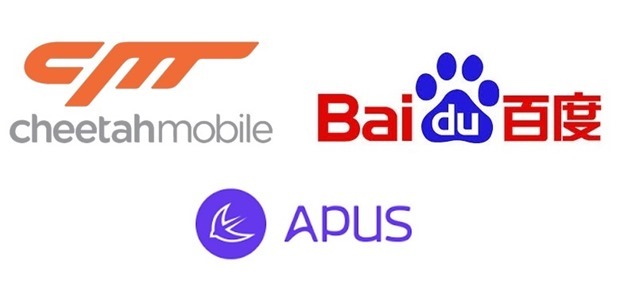Leading Chinese Companies Cheetah Mobile, APUS Group & Baidu Make India Entry

Chinese brands are already making a splash in Indian Smartphone market, which recently became the fastest growing smartphone market in Asia-Pacific. Infact, they are not just entering India, many of them are even setting up their manufacturing units in India . Gionee, Xiaomi, Huawei, Oppo & others have already announced big plans for India.
Apart from handset brands, many Chinese mobile app makers are also now setting up their shops in India. Mobivista, a mobile advertising company, recently announced plans to invest $100 million in India till 2018.
Now, the leaders of the Chinese mobile markets like Baidu, Cheetah Mobile, and Apus Group too have announced plans to seek Indian partnerships and hire Indian developers, besides making some major investment plans at the Global Mobile Internet Conference (GMIC) in Bengaluru.
The number of mobile users in India is evidently the highest outside China and hence India is becoming important to them, considering the big numbers in population and Internet penetration. Now with the new government easing out norms for foreign investors, the gates have been opened wider for them. Not to forget the new government’s promotion and focus on penetration of Internet.
Cheetah Mobile
Beijing based Cheetah mobile said that it wants to hire local talent and indulge into local partnerships, which is good news for the large section of the unemployed populous. The company is looking forward to promote the Cheetah advertising platform, and invest in startups in India. “The mobile internet market in India is growing rapidly. India will soon become the most populous country. So we see India as one of the most important markets. With our wide range of utility applications, as well as our expertise in app monetization, we aspire to create a safer, speedier, and simpler environment for smartphone users in India,” said Sheng Fu, CEO of Cheetah Mobile. The growing population of the country, which is not a very sign for the nation, is a plus for them.
Cheetah Mobile is ranked the third-largest mobile utility application developer in India behind Facebook Inc. and Google Inc. Advertising is their major source of revenue from India, as the country has not yet fallen prey to subscription-based revenue systems yet. Indians are yet not okay with spending for services online, and a very small section spends on apps and games, hence, advertisements are all that these companies strongly bank upon, and generate wholesome revenues from.
Cheetah mobile is company behind popular Android apps like Clean Master, CM Security, Battery Doctor, and Photo Grid. The company crossed 1,596 million app installations in June. Among its 494 million mobile monthly active users, 9% are from India, which makes India its largest user base. Based on these figures, it is trying to pace up operations in the Indian market, eyeing the next half-a-billion smartphone users.
APUS Group
Chinese mobile app maker APUS group has set aside a sum of Rs. 100 crore to invest in India. The app company which has a hugely popular Android launcher is looking to fund early-stage companies in the area of mobility over the next three years.
Apus has around 25 million of its 200 million app users from India, which is also it’s largest market. The company now wants to make India the anchor center of Asia for them and plans to set up a research and development wing, a technical support centre and an operations team.
Baidu
Baidu is China’s most popular search engine and the world’s fourth most popular site after Google, Facebook and Youtube. The company is listed on Nasdaq and has a market capitalization of $52 billion (Rs 3.4 lakh crore). Now, Baidu wants it’s next growth engine to be India. Like Apus, they too plan to invest in Indian startups.
It is clear that large Chinese companies, especially in mobile and internet space look at India as their next growth opportunity. In 2015 alone over 15 Chinese companies have made an entry into India either by way of making investments, or setting up their base. And looks like this trend is not going to stop anytime soon!
